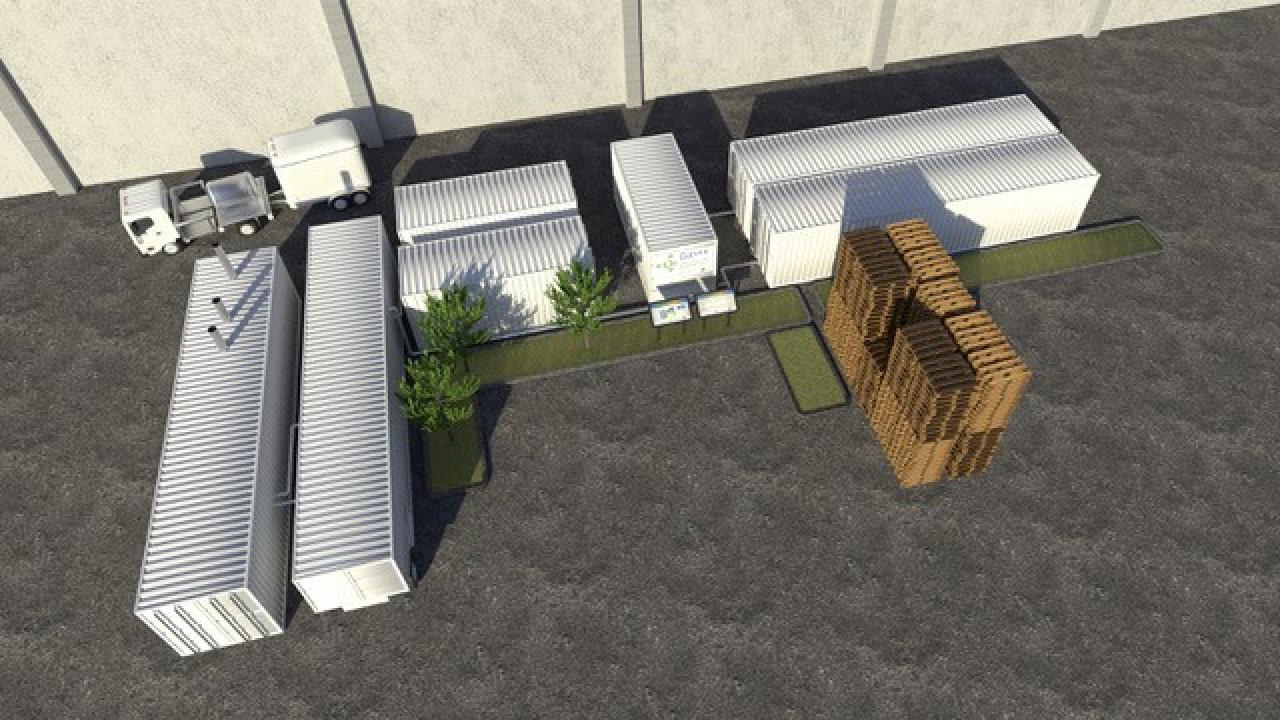
Assistant Professor Ned Spang and Associate Professor Christopher Simmons were recently awarded a grant for $3.16M from the California Energy Commission for the project "Demonstrating the Potential for On-Site Electricity Generation from Food Waste Using Containerized Anaerobic Digestion Units".
The project team consists of UC Davis (Dr. Spang as lead PI, Dr. Simmons as Co-PI, Jill Brigham as Project Engineer, and Sara Pace as Postdoctoral Scholar) and a sub-contractor, Biodico Sustainable Biorefineries (http://biodico.com), Russ Teall. The technology provider is Impact Bioenergy (http://impactbioenergy.com), and the site installation organization is Lineage Logistics in Oxnard, CA.
The overall goal is to assess the technical, economic, and environmental performance of a small-scale, containerized anaerobic digester technology for converting food waste into electricity, heat, and fertilizer.
This project will assess the potential for a highly standardized and rapidly deployable decentralized AD system as a compelling alternative to large-scale centralized AD facilities. By implementing on-site AD at locations where food waste is generated and electricity demand exists, it is possible to reduce/avoid 1) the consumption of non-renewable electricity, 2) the transmission and distribution (T&D) losses associated with the delivery of electricity across long distances on the grid, and 3) the transport costs (inclusive of the monetary, environmental, and public health costs) of hauling food waste long distances to feed larger AD generators.
The goal of the efforts is to advance both the technology and knowledge required to increase the deployment of cost-effective, on-site AD systems that jointly optimize waste management and renewable electricity, heat, and fertilizer production for local California communities. In pursuit of achieving our stated goal, we propose the following four objectives to guide the activities over the duration of the project period:
- Install and operate an innovative, community-scale AD solution at Lineage Logistics, a cold storage facility in Oxnard, CA, that successfully produces electricity, heat, and fertilizer from food waste (non-recoverable for human consumption) collected from local enterprises less than 7 miles away and including severely disadvantaged communities.
- Monitor, evaluate, and enhance the performance of micro-scale AD systems (less than 5 tons per day of food waste).
- Estimate the potential economic and environmental costs and benefits associated with the scale out of decentralized AD solutions relative to more centralized AD infrastructure.
- Broadly raise awareness on the problem of food waste, opportunities to redirect food to those in need, and the potential for small-scale AD systems as a viable option to produce positive local benefits from this "low-value" waste stream.
Congratulations to all!
